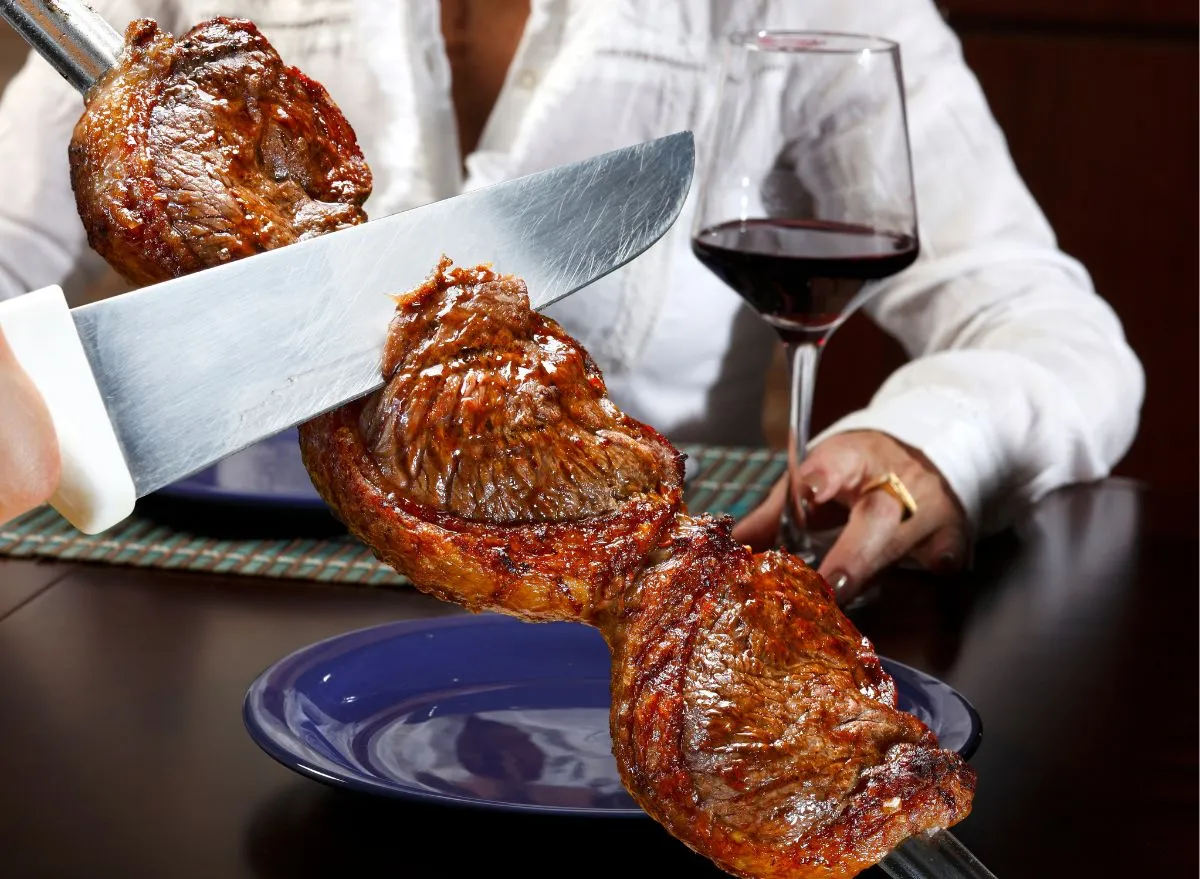Coffee can definitely be defined as a health elixir. It’s been found to reduce prostate cancer risk, reduce heart failure risk, and even lower your risk of hearing loss. And drinking a dark roast may even help you lose weight.
But for certain people, coffee may actually have more negative side effects than positive ones. We asked nutritionists about the people that should skip drinking coffee for better health, and here’s what they said. Read on, and for more on healthy eating, don’t miss What Coffee Does to Your Brain and 5 Drinks The Longest Living People Enjoy Every Day.
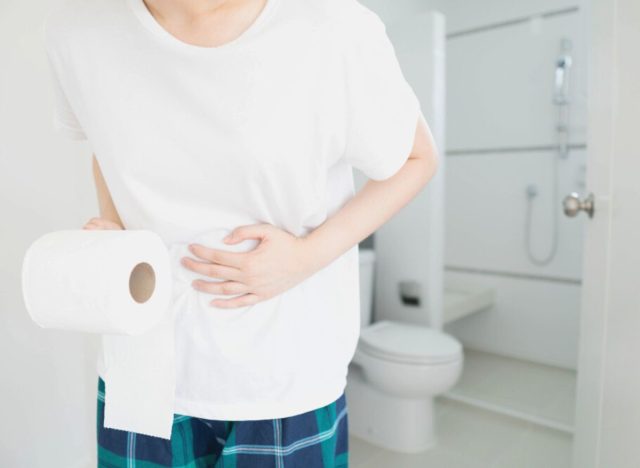

“Caffeine can increase bowel regularity, including increasing the chances of diarrhea (a major symptom of irritable bowel syndrome, or IBS),” says Angel Planells, MS, RDN, Seattle-based registered dietitian nutritionist, and former president of the Washington State Academy of Nutrition and Dietetics and Greater Seattle Dietetic Association. “So if you have IBS, it is encouraged to limit/avoid caffeinated beverages.”
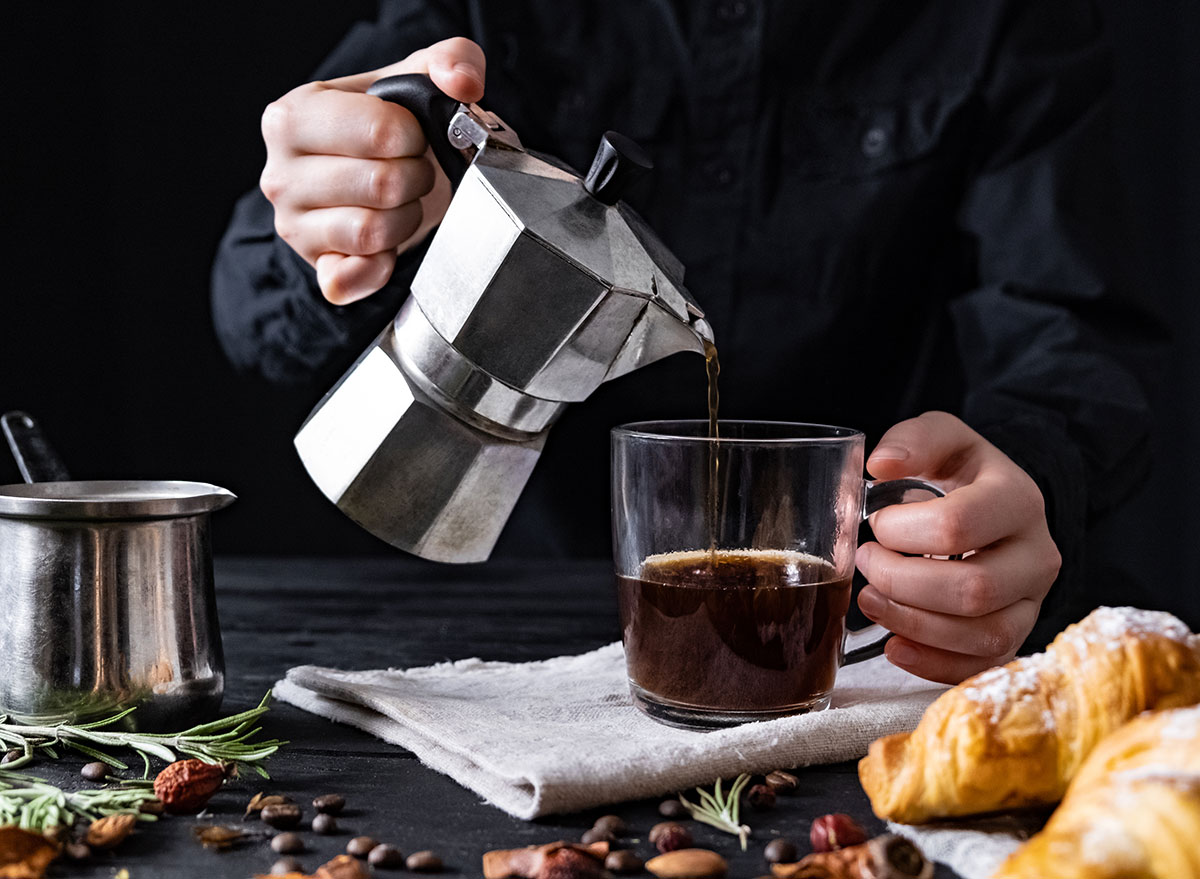

“Intraocular pressure increased for those with glaucoma when consuming coffee [according to a recent study], so it’s encouraged to limit/avoid intake, but more research is warranted,” says Planells.


“We all know it is best to avoid a large cup of coffee before a long trip, especially if restroom breaks are limited. Caffeine intake can increase both urinary frequency and urgency,” says Sue Heikkinen, MS, RD, registered dietitian for MyNetDiary. “If you don’t regularly drink coffee, you may be even more sensitive to this effect.” If you are planning for a long trip, then check out The Best & Worst Car Snacks for Your Next Roadtrip.
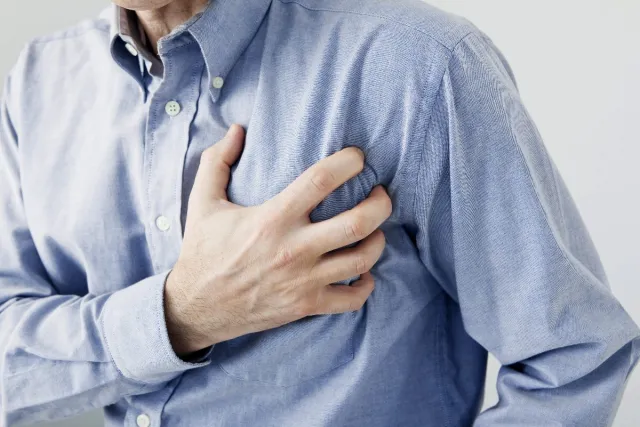

“As the caffeine from coffee can cause temporary increases in blood pressure and heart rate, it’s important for anyone with pre-existing heart conditions to talk with their healthcare provider about if/how much coffee is safe to consume,” says Kelli McGrane MS, RD, registered dietitian and Lose It! nutrition consultant.
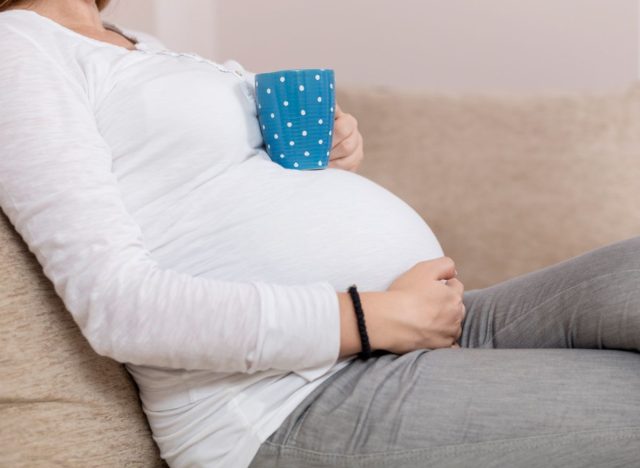

“The American College of Obstetrics and Gynecology recommends pregnant women limit caffeine to 200 milligrams (about what is found in two cups of coffee) daily in order to minimize the risk of miscarriage, premature labor, and low birth weight,” says Heikkinen. “However, a 2020 review published in the British Journal of Medicine concluded there is no safe level of caffeine intake during pregnancy. Pregnant women should discuss their caffeine intake with their doctor.”


“As caffeine is a stimulant and diuretic, the concern is that a breastfeeding mother may be at risk for dehydration,” says Planells. “The American Pregnancy Association suggests avoiding caffeine as much as possible during pregnancy and breastfeeding.”
READ RELATED: Kim Kardashian's Latest Collab Inspires You To Follow This Healthy Eating Habit
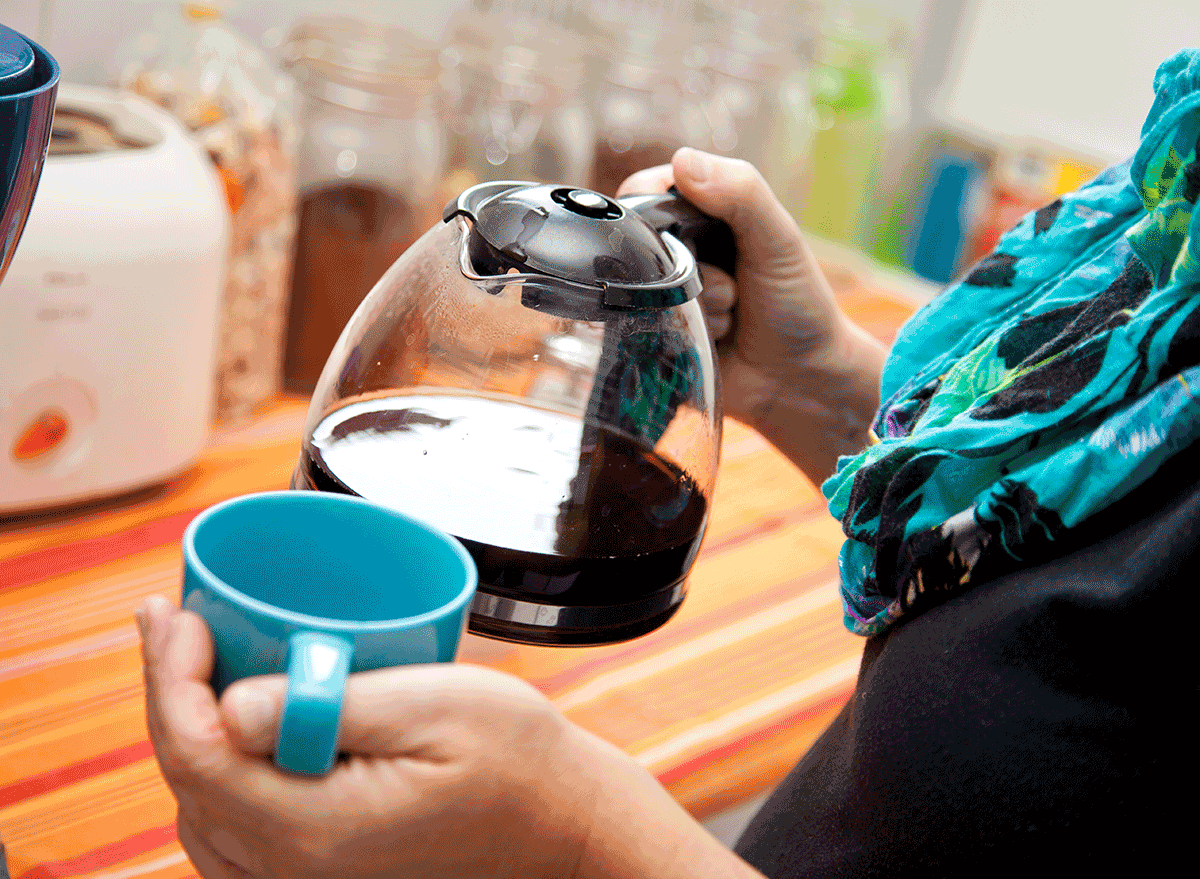

“It is understandable to reach for a cup of coffee (or more) after a poor night’s sleep, yet your coffee habit may perpetuate a cycle of poor sleep and fatigue,” says Heikkinen. “Even if you don’t think your afternoon coffee affects your sleep, it could indeed affect sleep quality. Avoid caffeine at least six hours before bedtime, as recommended by the Sleep Foundation.” Instead, maybe switch over to one of the 6 Best Teas To Slow Aging, Say Dietitians.
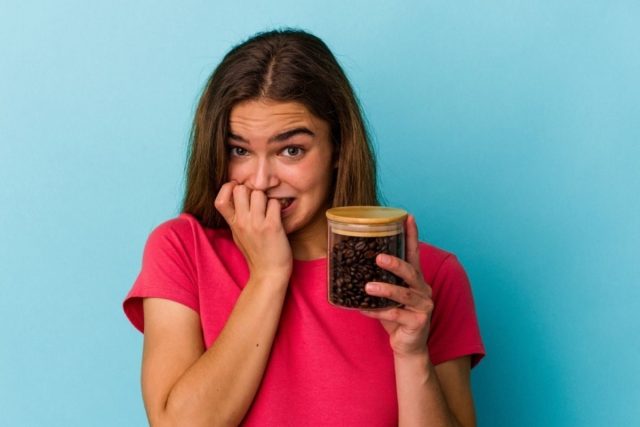

“Caffeine is a stimulant, which may worsen anxiety in some individuals,” says McGrane. “If you regularly experience anxiety or panic attacks, you may want to consider avoiding or reducing your caffeinated coffee intake.”


“Some people swear by their morning cup of coffee to ‘get their bowels moving,’ but this effect is not desirable if you are struggling with diarrhea,” says Heikkinen. “Decaf coffee may be less problematic, although hot liquids, in general, tend to stimulate the bowels.”


“While a limited study, [recent findings showed that] heavy coffee consumption was associated with increased seizure frequency. But more studies are needed,” says Planells. Consider talking to your neurologist about your caffeine intake if you have epilepsy.


“While caffeine can make any of us a little jittery, it can have more noticeable and even serious side effects at smaller doses in kids,” says McGrane. “For example, too much caffeine in kids can lead to increased heart rate, increased feelings of anxiety, difficulty concentrating, and an upset stomach. Another aspect to consider, especially in toddlers, is that coffee can mask hunger cues, so toddlers may not get the nutrition that they need for growth and development. Finally, keep in mind that coffee itself is quite acidic, and as a result can damage tooth enamel and increase the risk for cavities.”


“Caffeine can loosen the lower esophageal sphincter, which is the valve between the esophagus and stomach. This could cause acid stomach contents to enter the esophagus, resulting in uncomfortable GERD symptoms,” says Heikkinen. “If you have GERD, see if switching to decaf helps.”
Source:




